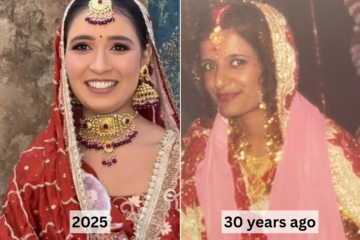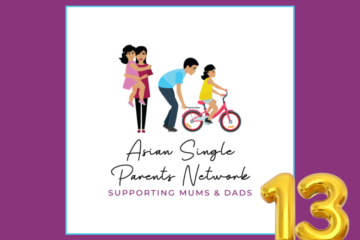Divorce in Asian Communities – Is it possible to overcome stigma?

Sara Davison shares her thoughts with the Asian Single Parents Network on the stigma around divorce in Asian culture, and suggests some useful tips.
There is a good reason that divorce is known as one of the most traumatic life events you can ever encounter, second only to the death of a loved one. It is an emotional rollercoaster and has a huge ripple effect across your entire world. It will affect your mental and physical health, lifestyle, daily routine, children, work life, friends and family.
Divorces are still riddled with stigma in India – which is the reason its divorce rate is the lowest in the world at less than 1% – which means out of 1,000 marriages, only 13 result in divorce. This is in stark contrast to the UK which is amongst one of the highest at 42%. Marriage within the Asian community is considered sacred and even quintessential for a woman – divorce is seen as a sign of failure and divorcees are shamed and shunned for going against parents and cultural norms. Young women from Indian-origin backgrounds often get married within their community — so there is a lot of pressure on them to maintain cultural continuity and family tradition even if the women are second or third generation. An unsuccessful marriage, or a single daughter, or a divorced daughter, is taboo for most Indian-background families. Women are blamed for their failed marriage, called various names if they seek alimony or financial support and are prone to harassment post-divorce.
In Westernised sub-cultures, including the UK and US, this stigma is still rife within communities. Because of this it’s increasingly common to see what’s becoming known as an ‘invisible divorce’, whereby Asian women live separate lives from their partners without legally divorcing. As well as the social, emotional and economic advantages this presents, many choose this route to avoid being shunned by family members, fearing that they will experience a shrinking of professional and social networks. On the darker side of this, many women are not only trapped in loveless marriages, they stay in abusive relationships believing there is no way out.
Encouragingly, in recent years, we are starting to see more and more women challenging this perception and pushing for a change – coming together with other women in their situation through social media and online support groups has become a lifeline for many.
I worked with a client recently who fought hard against this stigma. She divorced her husband after 18 months of a semi-arranged marriage. Her husband was verbally abusive and coercively controlling and she could bear it no longer. Following the divorce, she was cast aside by members of her community. She fell into a depression and scarcely left the house. She came to me because she felt she had nowhere to turn – her family were still speaking to her fortunately but they refused to understand. She felt isolated and that she was ‘damaged goods’ and found zero support within the community.
There is no one piece of advice that fits every situation as everyone is different and your story depends on so many personal factors that influence your behaviour and actions. So I worked closely with her to come up with a plan together that enabled her to rebuild her confidence in a way that felt safe and to create a brand new support team that could be a positive influence on her.
She also began connecting with women through her Instagram account where she found a micro-community of divorced women. Slowly, she began to normalise her experience and this was the first step in regaining her self-worth. Today, she leads a full and happy life – she met someone new after finding the courage to start dating again and together they have built a successful business.
Leaving a marriage is never the easy option. But for those facing cultural stigma and exclusion it can seem bleak and – for some – impossible to escape an unhappy marriage. But the reality is it’s possible and with the right support, you can redesign your life just the way you want it. To create a new life path that you are excited about and that makes you happy.
The first step in relationship breakdown is to create a support network for yourself. Divorce is about so much more than the legal process – it’s a re-defining moment in your life. You need impartial emotional support, so you can make long term decisions which are right for you and your family. A good divorce is one that is fair, respectful and enables you to have the best chance of an amicable relationship with your ex in the future. But most importantly it is one where you rediscover who YOU are and gets you excited and hopeful about your future.
So what can you do to improve your chances of a good divorce and avoid unnecessary falls outs and pressure. Here are my 12 top tips on how to have a good divorce:
1. Talk with your ex and discuss how you will manage the uncertainty moving forward. If you can both agree to always treat each other with kindness and respect this creates a strong foundation to move forward from.
2. Don’t bad mouth your ex to others as this may well get back to them and make things worse. Of course you can be honest with your inner circle of select friends and family but avoid openly discussing your ex in public.
3. Pick your battles. In the heat of the moment it is easy to get worked up over the little things. Take a step back and work out if you will really care about this in a few months’ time. This will help you to get perspective on what is important and what is emotion getting the better of you.
4. Start redesigning your future and planning things to look forward to. If you are excited about what lies ahead then it will be easier to move forward. Shifting your focus to what opportunities this divorce brings and making them a reality will really help you to let go and give you momentum.
5. An amicable divorce doesn’t mean you don’t need legal advice. A legal advisor will give you clarity about what to expect from your split. This will ensure you make the best decision for you and you won’t have any regrets in the future.
6. Avoid people who are emotionally involved in your divorce and who may inadvertently pour fuel on the fire or make you worry about what lies ahead. Spend time with people who make you feel good about yourself and are excited about your future.
7. It’s ok to feel sad about your divorce. In fact it’s normal to grieve the end of your relationship even if it is amicable. Feeling upset is the way your body processes the end of a partnership that meant a lot to you and it helps you heal. Stuffing your emotions down and not facing them will only mean you drag your baggage forward with you.
8. If you have worries, then get advice from experts in the areas you are concerned about. For example if you are concerned about finances then find someone who can help you create a plan for your situation which will enable you to feel more positive about the future.
9. Exercise is a great way to instantly boost your state of mind. Even a brisk walk around the block will help you feel better and help you stay in control of your emotions.
10. Take time for you to relax and have some fun. It’s important to have fun things in your diary so you are not all consumed with your breakup. There is more to life than relationships and you need to maintain a healthy balance in other areas of interest too.
11. Take some time to work out what went wrong with your relationship, so you can learn from any mistakes and anything you would do differently next time round. It’s always good to take some time to work out what you want and who you are now you are single before you jump into a new relationship. You will find lots of new and exciting things that will help empower you to enjoy your new life.
12. Spring clean your life. Create a plan for the life you want to live and the person you want to become. Out with the old and in with the new. Try new things, do things differently and make small changes that add more sparkle to your life.
For more information on Sara Davison’s Breakup Retreats and to book onto her online course ‘Break-Up Breakthrough’ please visit: www.saradavison.com
For more information on how you can become a Divorce Coach please visit: https://sara-davison.mykajabi.com/dcap-free-training-opt-in


